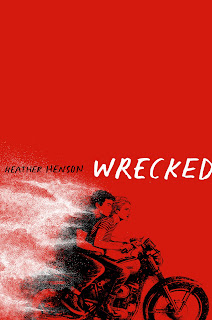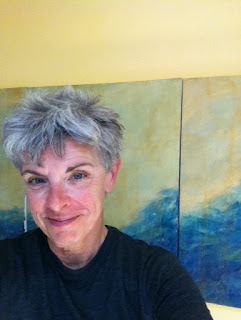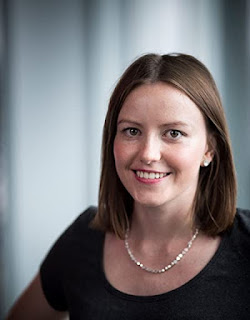Nicholas Garnett is the author of the new memoir In the Pink. A freelance editor, he is also the co-producer of the storytelling series Lip Service, and his work has appeared in a variety of publications, including Salon and The Florida Book Review.
Q: What inspired you to write this memoir, and over
how long a period did you write it?
A: The short answer is that the inspiration for my
memoir, In the Pink, came pretty easily. Its publication did not.
The much longer answer is: As the only straight,
married guy thoroughly immersed in the gay circuit-party scene of the ‘90s (if
there were others, I never met them), it occurred to me that I had a unique
story to tell.
By the time my marriage had ended in divorce, and I
had relocated from Washington, D.C., to Miami Beach in 2004 to start a new
life, I had written a few chapters of what I imagined would be a scandalous,
behind-the-scenes view of a decadent lifestyle.
I began to take writing workshops, and the more I
took, the more I wrote: scene after scene—vivid and compelling—according to the
feedback I was getting.
In 2006, I spent the summer in Provincetown,
Massachusetts, a long-time mecca for artists and writers. The apartment just
above mine happened to be rented by a prominent writer who had just published
his memoir. One day, I finally got up the nerve to ask him if he would take a
look at what I’d written.
I spent much of the next couple of days in
anticipatory agony, peering through my venetian blinds as he paced back and
forth along the walkway that ran outside our units reading my story, the
manuscript in one hand, a cigarette in the other. Finally, he invited me up to
his place. He handed me a cocktail, lit up a joint and handed me that, too.
He said, “I’ve got some good news, and some bad news.”
He didn’t ask me which I wanted to hear first. “Good news is,” he said, “you
can write.” He motioned for me to hand him the joint. I did, and he took a
toke, as if to prepare himself for what was coming next. “But you’re not a
writer.” Ouch.
He went on to explain that while I obviously had a
knack for description and rendering scenes, he felt detached from the story
because he didn’t have a sense of who was writing it, or why. “A reporter can
get away with just the facts,” he said, “a writer can’t.” I was going to have
to figure out a way to insert my myself into the story, he said. And to do
that, I would have to figure out what it meant to me.
I hated that advice. Following it would mean doing
what didn’t come naturally to me: introspection. And it would also take what I
didn’t want to give: time. Time to be able to look back at what happened, to
put it in some context. That process took me years and an M.F.A. degree in
Creative Writing (the memoir was my thesis) to accomplish.
Gradually, I began to see that, while the decadent
behavior and outrageous events depicted in my memoir were unusual, the story
was universal: one guy’s search to find his place in the world. Once I figured
that out, things began to make sense and the story began to take shape. I cut
thousands of words and dozens of scenes—some of them pretty damn good—that were
repetitive or irrelevant, or both.
By 2011, I had finished my M.F.A. and produced a story
that proved, at least to myself, that I had progressed beyond someone who could
write. I had become a writer.
A literary agent agreed with me. She shopped the story
to several editors and here’s what happened next. Nothing. Universal theme
notwithstanding, no publisher was ready to take on a story about a straight
guy’s immersion into gay party culture. As the years and the rejections piled
up, I began to give up.
The only shred of hope I clung to was that the digital
version of my memoir, which had been posted by the university in an on-line
repository along with all sorts of other master and doctoral theses, was kind
of a hit.
Each month, I’d receive a report telling me that 15 or
20 (on a good month, 30 or 40) copies of my thesis had been downloaded. I
wasn’t told who had requested it or why, but I was told where. And “where”
included some places I would never have expected.
Somehow, and for reasons I couldn’t fathom, people
living in Mumbai, Moscow, Barcelona, Teheran, Hong Kong, Saigon, Amsterdam, Finland,
Singapore, Nairobi, Jakarta, several cities in Germany, Poland, and Romania had
managed to find and download my story. Maybe my story was universal.
In December of 2020, the monthly report showed that I
had accumulated over 3,000 downloads. After 10 years of trying without success
to get the story published, and with no prospects on the horizon, I threw in
the towel.
On December 11, 2020, here’s what I posted to
Facebook: “Looks like I created a whole new literary category: international
non seller. I've decided to go all in. If you're looking to curl up with a good
book over the holidays, join readers from all over the world and download mine.
What the hell--it's free. And if you like anything about it (I mean anything:
the formatting, the font) please let me know. I could use a little
encouragement right about now.”
A few days later, a professor in my M.F.A. program who
had seen my post asked to take a look at the manuscript. He had someone he
wanted to run it by. That “someone” was a publisher. Fifteen years after I
started writing it, 10 years after I thought I’d finished it, and a few weeks
after I’d given up on it, I received an offer to publish In the Pink.
What’s the message here? I have no idea. The odd chain
of events that resulted in the publication of my memoir could have just as
easily happened five years ago. Or never. All I can say is that I’m sure it
would never have happened at all but for the guidance I got that afternoon in
Provincetown back in 2006. Sometimes, the best advice is precisely the kind you
don’t want to receive.
Q: The author Les Standiford wrote of the book, “By
turns outrageous, hilarious, and truly moving, this unflinching chronicle of a
profoundly mismatched straight couple's foray into the gay party and power
circuit sets a new standard for the tale of wretched excess, and provides
much-needed perspective along the way.” What do you think of that description?
A: Masterful! Besides, who am I to take issue with Les
Standiford? I mean, he’s the founding director of the MFA program at Florida
International University and has published something like 25 books. A version
of In the Pink was my MFA thesis and he was my thesis advisor, so—with the
possible exception of me—he knows this story better than anyone.
And more than anybody else—with the possible exception
of me—he was surprised and disappointed that the story wasn’t published
earlier. For years, he kept paving the
way, connecting me with various agents and editors. As the rejections kept
piling up, I started to lose hope, but he never did. I can’t properly express
my gratitude to him. Or maybe I just did.
Q: How would you describe your marriage to Rachael?
A: I spent a whole book trying to do just that! In the
memoir, I describe how I felt the morning after Rachael and I first hooked up:
“I’d figured last night for a drunken, coked-out one-night stand between a
couple of bored, lonely people looking for something they didn’t know they
never had. I was wrong about the one-night stand.”
Like all relationships, even the failed ones, there
were positive elements: I walked her back and she pressed me forward. We were
married for 10 years, and I’d say the first five were good. But the lifestyle
depicted in In the Pink wasn’t sustainable. We had to move on. The problem was
we couldn’t answer the question move on to what? When we couldn’t see ahead, we
turned on each other.
The thing I wish I could go back and change is the way
I parted ways with Rachael. Not the fact that I did it—but how. Instead of
facing up to her, I did the one thing I knew she couldn’t forgive: betray her.
That was a cowardly act, one I will always regret.
We’re not in touch and haven’t been for many years. My
time with her feels like a lifetime ago, and I suppose it was. I’m happily
remarried and feel so lucky to have the life I have now. The things I was
looking for, I found. I hope Rachael did, too.
Q: What are you working on now?
A: Not another memoir! I think I’ve said everything I
have to say about myself. After I had all but given up on In the Pink ever
being published, I moved on and wrote a literary thriller set in Miami Beach.
I was in the process of shopping that story around to
agents and editors when, unexpectedly, In the Pink was accepted for
publication. I had to drop everything and devote all my free time and attention
to promoting it.
I’m hoping that In the Pink will help me find a home
for that novel. One way or the other, I’ll go back to anther I story I had
started that could lead to another book-length project.
Q: Anything else we should know?
A: Yes. Wait—you mean about me? Nah. But if you think
of something, just ask. I’m an open book.
--Interview with Deborah Kalb





.jpg)





.jpg)



